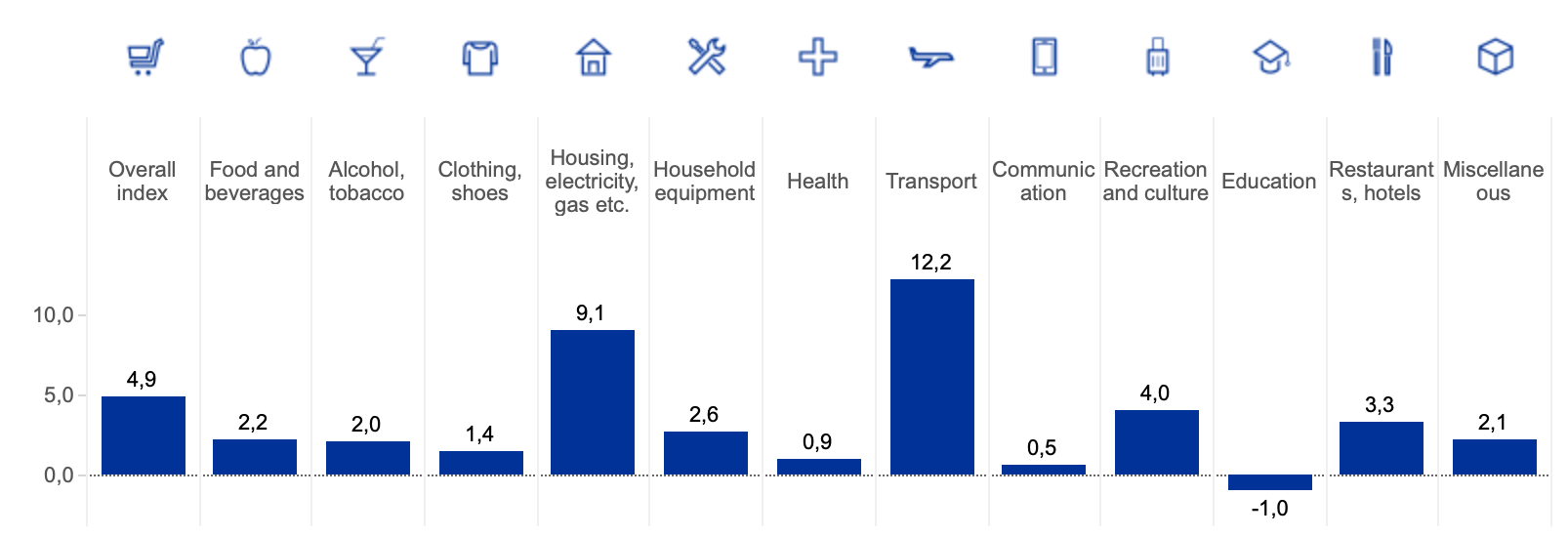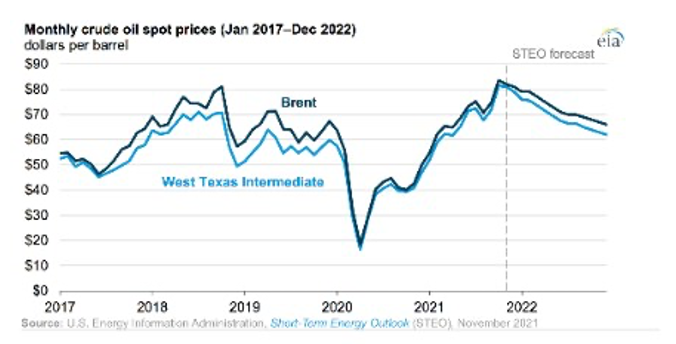Not only in the world of investors, but throughout the country, indeed throughout the world, not a news item goes by without mentioning inflation. Is that strange? No, inflation has not been this high in decades and it is an economic indicator that directly ‘affects’ us all. I recently explained to my 13-year-old daughter what inflation is and she understood immediately. I’ve had a harder time conveying certain things to her……
Is inflation important?
I want to answer that question from a bit of a philosophical angle, with your approval. Inflation indicates what the price increase has been up to that moment. And that moment is in the past. As investors and as people, we are mainly concerned with the future. We encounter current prices every day when we go to the supermarket, DIY store or the café.
I think it is more about the expectation of inflation in the future! Because that is what we, the world and therefore the economy base our behaviour on.
What is inflation?
I could of course leave this part out, because if my 13-year-old daughter understands it straightaway…… but I’d still like to take moment to explain it. It’s important to be able to give a good answer about expected inflation. Inflation is the general increase in prices of goods and services. This can be divided into: 1) daily groceries 2) durable consumer goods (such as clothing) and 3) services (hairdressers, rented housing, etc.). Within this ‘shopping basket’, the different groups are weighed separately. This can be seen in the picture below:

In the overview you can see the price increases in November in the Eurozone (on January 20 the December figures will be officially announced). Two big increases immediately stand out: those of ‘Housing, electricity, gas, etc.’: 9.1% and “Transport”: 12.2%. If I then tell you that Housing has a weighting of 17.7% and Transport of 13.7% against, for example, ‘Communication’ which has a weighting of 3.2%, you will clearly see that these two are the drivers (for the month of November and also for the whole year) behind the average price increase of 4.9%.
The future
To estimate what the expected inflation will be for 2022, an important underlying value is that of oil and gas. A price rise there almost immediately means that other prices will also rise and vice versa. It is difficult to form an opinion on this, so for convenience I have included one study (because there are many) by the EIA, see below:

You can see that this organisation expects the (two main) oil prices to fall in 2022. If they are right, there is a good chance that inflation will drop significantly. Conclusion
It is important to know how inflation is calculated in order to be able to make an accurate assessment of expected inflation. And the last point is more important, in my view, than the inflation figure that lies in the past…..
The ECB’s main job is to fight inflation, but they also frankly admit that it is difficult to make a good estimate of future inflation…. So you have to do it yourself. A fun way is to calculate your own inflation for the products and services you buy yourself. The ECB has a nice tool on their site for this: https://www.ecb.europa.eu/ecb/educational/hicp/html/index.nl.html
Hopefully, it will be much lower than the European average…

Kaspar Huijsman
‘’It’s a jungle out there, Trade Saf€’’
Vlogger at https://www.youtube.com/c/hugoinvesting
Podcast https://open.spotify.com/show/6ZsgB344CImYjkvNX1lc3w
Founder of https://hugoinvesting.com/
Founder of https://academy-for-investors.com/
Former CEO BinckBank Spain https://www.binckbank.com/hugoinvesting
Former CEO Saxo Bank Spain https://www.home.saxo/about-us
Co-founder Alex Beleggersbank https://nl.wikipedia.org/wiki/Alex_(bank)
The information in this article should not be interpreted as individual investment advice. Although Hugo compiles and maintains these pages from reliable sources, Hugo cannot guarantee that the information is accurate, complete and up-to-date. Any information used from this article without prior verification or advice, is at your own risk. We advise that you only invest in products that fit your knowledge and experience and do not invest in financial instruments where you do not understand the risks.

